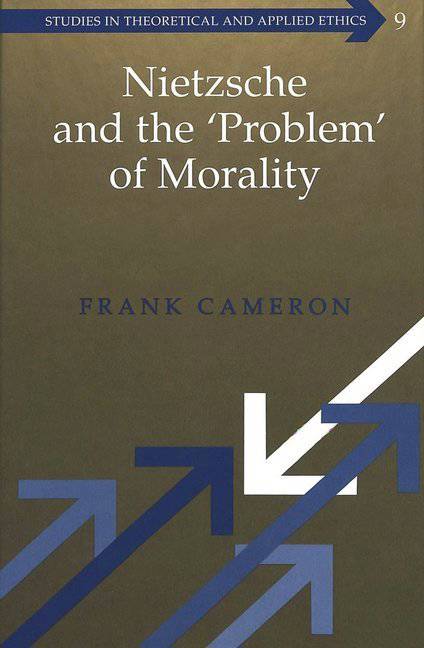
Door een staking bij bpost kan je online bestelling op dit moment iets langer onderweg zijn dan voorzien. Dringend iets nodig? Onze winkels ontvangen jou met open armen!
- Afhalen na 1 uur in een winkel met voorraad
- Gratis thuislevering in België vanaf € 30
- Ruim aanbod met 7 miljoen producten
Door een staking bij bpost kan je online bestelling op dit moment iets langer onderweg zijn dan voorzien. Dringend iets nodig? Onze winkels ontvangen jou met open armen!
- Afhalen na 1 uur in een winkel met voorraad
- Gratis thuislevering in België vanaf € 30
- Ruim aanbod met 7 miljoen producten
Zoeken
Omschrijving
This book examines Nietzsche's views on morality in order to assess his contribution to moral philosophy. Frank Cameron explores Nietzsche's understanding of morality, the infamous 'campaign against morality, ' and his engagement with key figures in moral philosophy, including the influences of Schopenhauer and Rée, as well as the main figures representing the three major ethical traditions - Kant, Mill, and Aristotle. Cameron argues that Nietzsche's fundamental 'ethical' preoccupation with 'higher type' forms the basis of his ethic of human flourishing, but refutes that Nietzsche's positive morality fits comfortably within the moral tradition. In particular, Cameron challenges the attempts to situate Nietzsche within the tradition of virtue ethics. Nietzsche defends his affirmative ethic by presenting the character of Zarathustra (Thus Spoke Zarathustra) and later himself (Ecce Homo) as exemplars of human excellence who must rely on their ability to convince others performatively, rather than by means of discourse or argumentation.
Specificaties
Betrokkenen
- Auteur(s):
- Uitgeverij:
Inhoud
- Aantal bladzijden:
- 203
- Taal:
- Engels
- Reeks:
- Reeksnummer:
- nr. 9
Eigenschappen
- Productcode (EAN):
- 9780820462028
- Verschijningsdatum:
- 29/11/2002
- Uitvoering:
- Hardcover
- Formaat:
- Genaaid
- Afmetingen:
- 160 mm x 230 mm
- Gewicht:
- 430 g

Alleen bij Standaard Boekhandel
+ 134 punten op je klantenkaart van Standaard Boekhandel
Beoordelingen
We publiceren alleen reviews die voldoen aan de voorwaarden voor reviews. Bekijk onze voorwaarden voor reviews.











